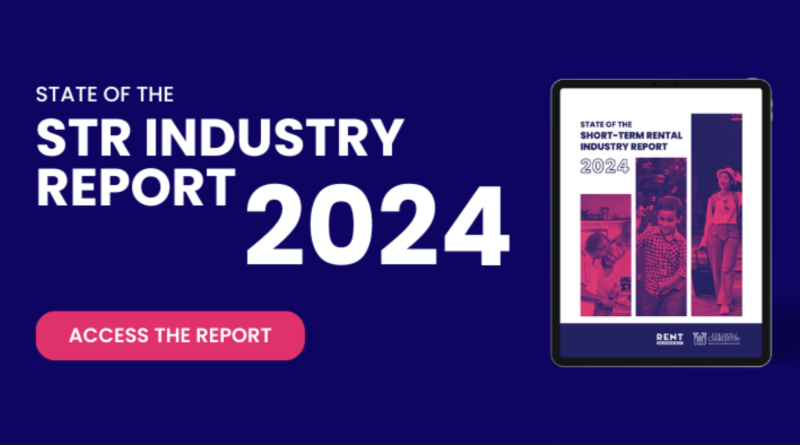[SPONSORED CONTENT] US-based short-term rental advocacy organisation Rent Responsibly explores hospitality and the ‘information gap’ while going between the lines of its 2024 STR Industry Report.
In late June, Rent Responsibly released the 2024 State of the Short-Term Rental [STR] Industry Report. Conducted by the College of Charleston’s Office of Tourism Analysis, the study provides a comprehensive view of today’s STR landscape. Researchers surveyed not only more than 4,000 owners and property managers but also more than 2,000 local government officials across the United States in the largest study of its kind, resulting in over 130,000 data points.
The information gap
Among the most surprising findings was how wide the information gap is in local policymaking. As stated in one of the report’s ‘Observed Opportunities’:
Only 18 per cent of elected officials affirmed they have an adequate amount of information to inform their STR policy decisions. Most significantly, 46.8 per cent of elected officials and 35.0 per cent of government staff were unsure of the number of STR units in their jurisdiction, and more than half [54.5 per cent] of elected officials and 40.1 per cent of government staff reported being unsure of the number of housing units in their jurisdiction.
For those who have seen STRs scapegoated for affordable housing issues so many communities face [83 per cent of municipalities, according to the report], this information vacuum may seem understandably alarming. But as the report contributors point out, supplying data may be the industry’s biggest – and easiest – opportunity to contribute to more effective and fair policies.
STR and housing supply estimates, if not exact numbers, are relatively easy to find, and hosts and advocates have a responsibility to supply this information to their jurisdictions’ decision-makers to start regulatory conversations from an informed base.
The value of local tourism
Even more optimistically, the report quantified the widespread value and importance STRs have to their local economies. The report highlights that 94.6 per cent of STR operators support locally owned and operated businesses through purchases and referrals. This will be good news to the majority of government officials who rank tourism as important to their local economies and rank guest spending as highly important to their jurisdiction, second only to property values.
Particularly in election years like this one, local economic impact figures like these can provide critical air cover to policymakers facing loud NIMBY [Not In My Back Yard] constituents, especially those who have a positive personal stance toward STRs in their jurisdictions, as 48 per cent reported they did.
New policies will impact hosts, guaranteed
Unsurprisingly, regulations are a significant concern for STR operators. According to the report, more than 50 per cent of operators have already been negatively impacted by existing STR regulations. And based on the government officials who reported that their jurisdictions would be revising or enacting an STR ordinance in the next 12 months, operators in an estimated 8,746 more jurisdictions may soon feel the pinch [or worse].
Left without adequate data to make informed decisions, policymakers are prone to enact things operators cannot sustain. Unaffordable permit or licensing fees and limits on rental nights are cited as the most prohibitive ordinance components, with more than 63 per cent of respondents indicating these factors could force them to stop renting.
Increased lodging and property taxes also pose significant challenges. Just ask Colorado hosts, who earlier this year faced a state bill to quadruple property taxes on STRs [it was defeated, at least for this session, thanks to the advocates of the Colorado Lodging and Resort Alliance].
The report starkly reveals that new or revised regulations will impact all STRs sooner or later. Operators can no longer stick their heads in the sand when policy conversations pop up: advocacy is now a required part of doing business.
Improving the information infrastructure
Thankfully, more than 55 per cent of STR operators want their local government to involve them more in the ordinance process, and more than 40 per cent of all respondents plan to participate in advocacy in the next 12 months. And elected officials want to hear from hosts. They indicated multiple ways that STR operators could support legislative decision-making, including participating in public comment forums as the primary method, followed by collaborating on policy solutions and providing data their jurisdictions do not have.
Of course, the onus is not entirely on operators to improve this collaboration. Policymaking is [or should be] a two-way street, and governments have some potholes to address on their side of it. The report sums up another key opportunity:
Through several survey topics, STR operators reported challenges with tracking changes to and complying with local regulations. One of the most significant areas of disconnection is between how governments share information about regulations and how operators get it. Government staff most frequently selected “by responding to inbound inquiries from operators” and their government website as methods for communicating regulations and compliance information to operators.
However, government websites ranked sixth among the sources operators get their regulatory information from, behind online travel agencies such as Vrbo or Airbnb, an STR alliance or association, social media, emails from their local governments, and news outlets.
While operators can proactively check their local government sites more often and subscribe to alerts or emails, governments can reach more STR operators by leveraging these additional communication channels, like asking OTAs and STR associations to disseminate this information more widely.
Now seeking local voices, no experience required
The task before us may seem daunting, but it is ultimately simple: the path to more sustainable STR regulations requires building information bridges. Technology can [and has] made this easier, particularly for owners who do not live and vote where their STRs are located and who may feel like they have no voice at all [you do].
But technology is not a requirement. Any one of us can drop by city hall for a casual conversation or invite a council member over to our STR for coffee [it is worth noting here that government officials who had stayed in an STR were more likely to have a positive stance on STRs than those who had not].
Our government officials prefer to hear from their local hosts and managers over engaging with the public affairs and lobbying staff of ‘giant out-of-town corporations’ like the OTAs. To quote what Julie Marks, founder and executive director of the Vermont Short-Term Rental Alliance, told the Wall Street Journal last month: “If Julie Marks and her three friends, who are also Vermonters, walk through the door, they’ll listen.”
Everyone benefits when we advocate. A final piece of good news: we are all already advocates. Ensuring our guests have five-star experiences in our destinations, supporting local businesses, being good neighbours and ambassadors of our destinations – in these activities, hospitality and advocacy are one and the same.
And as the State of the STR Industry Report uncovered, building information bridges extends that hospitality to government officials. In doing so, we can reroute the regulatory roadmap to a more successful future for all.
For more takeaways, including many outside of regulations and advocacy, join the RR Network free to access the complete report, watch the replay of the live reveal event, and access a robust library of hosting resources.







